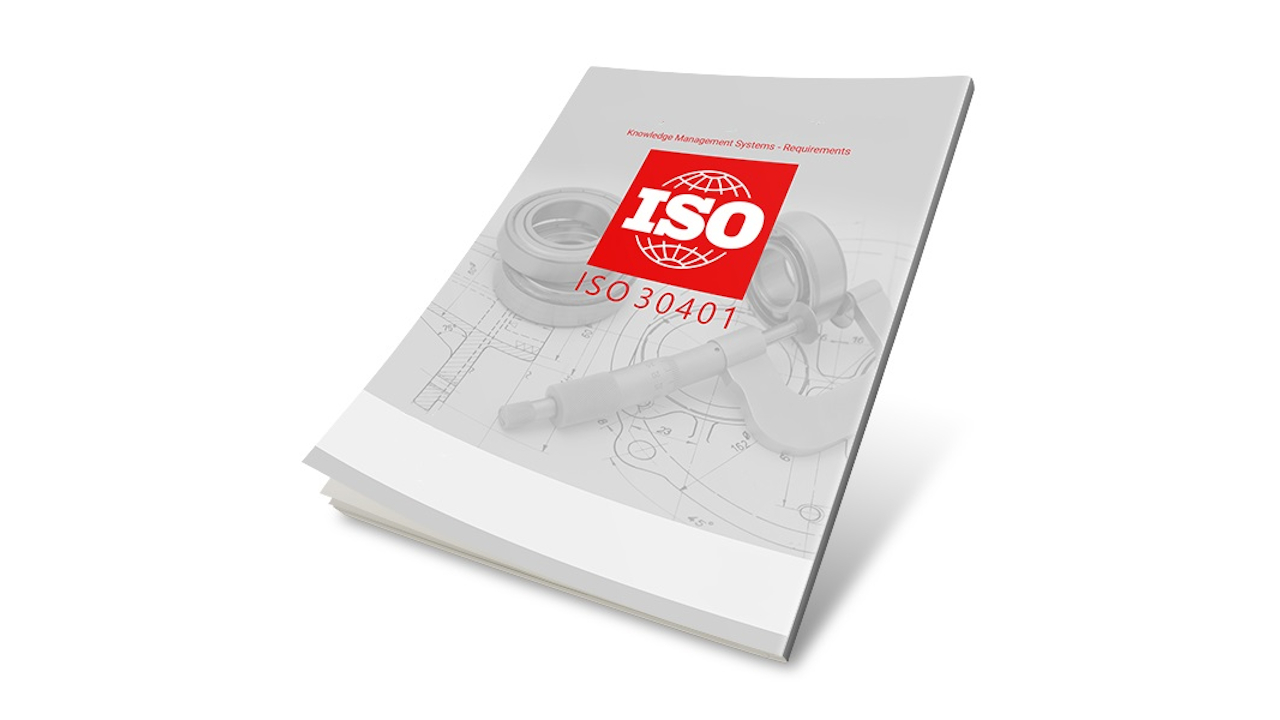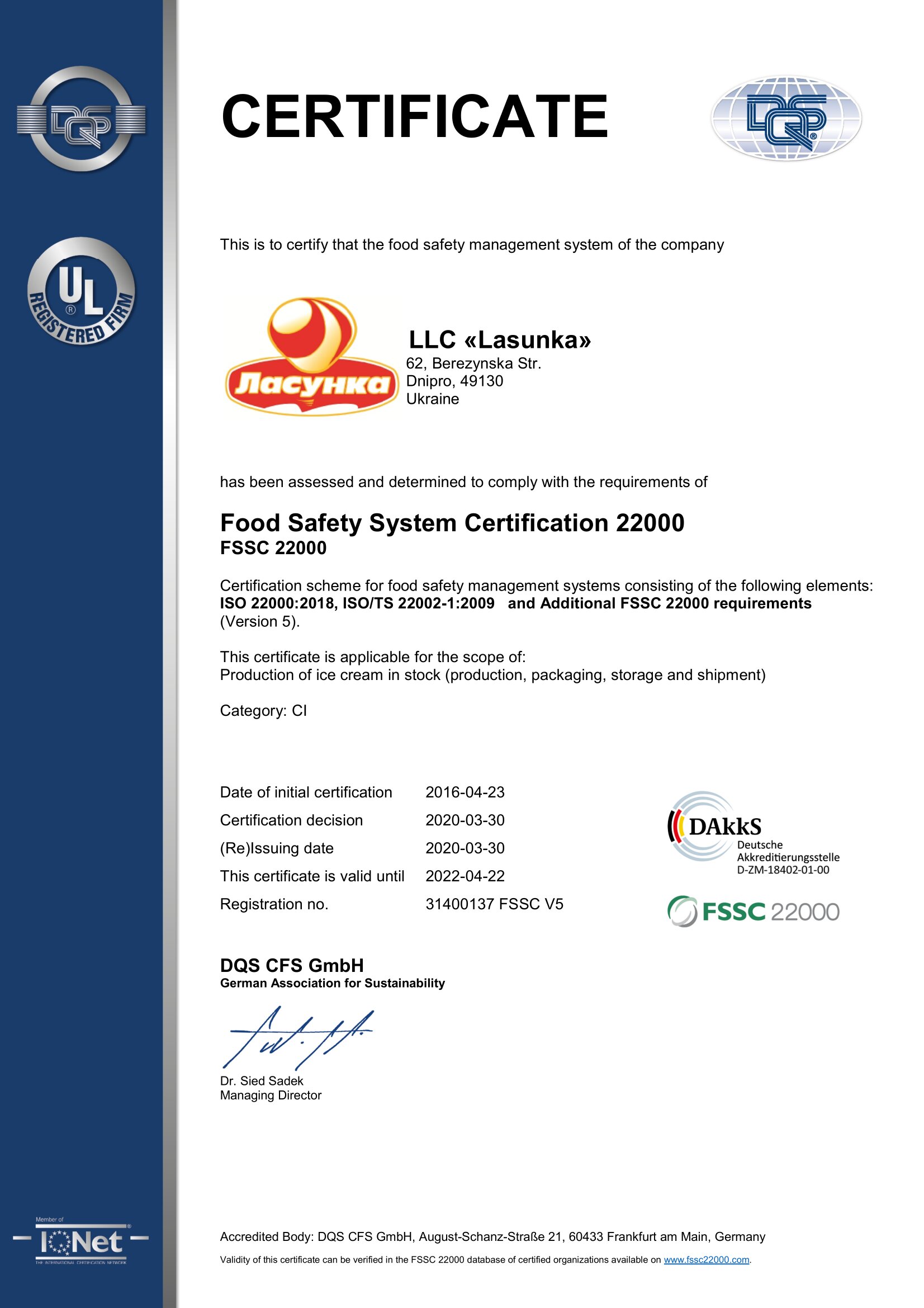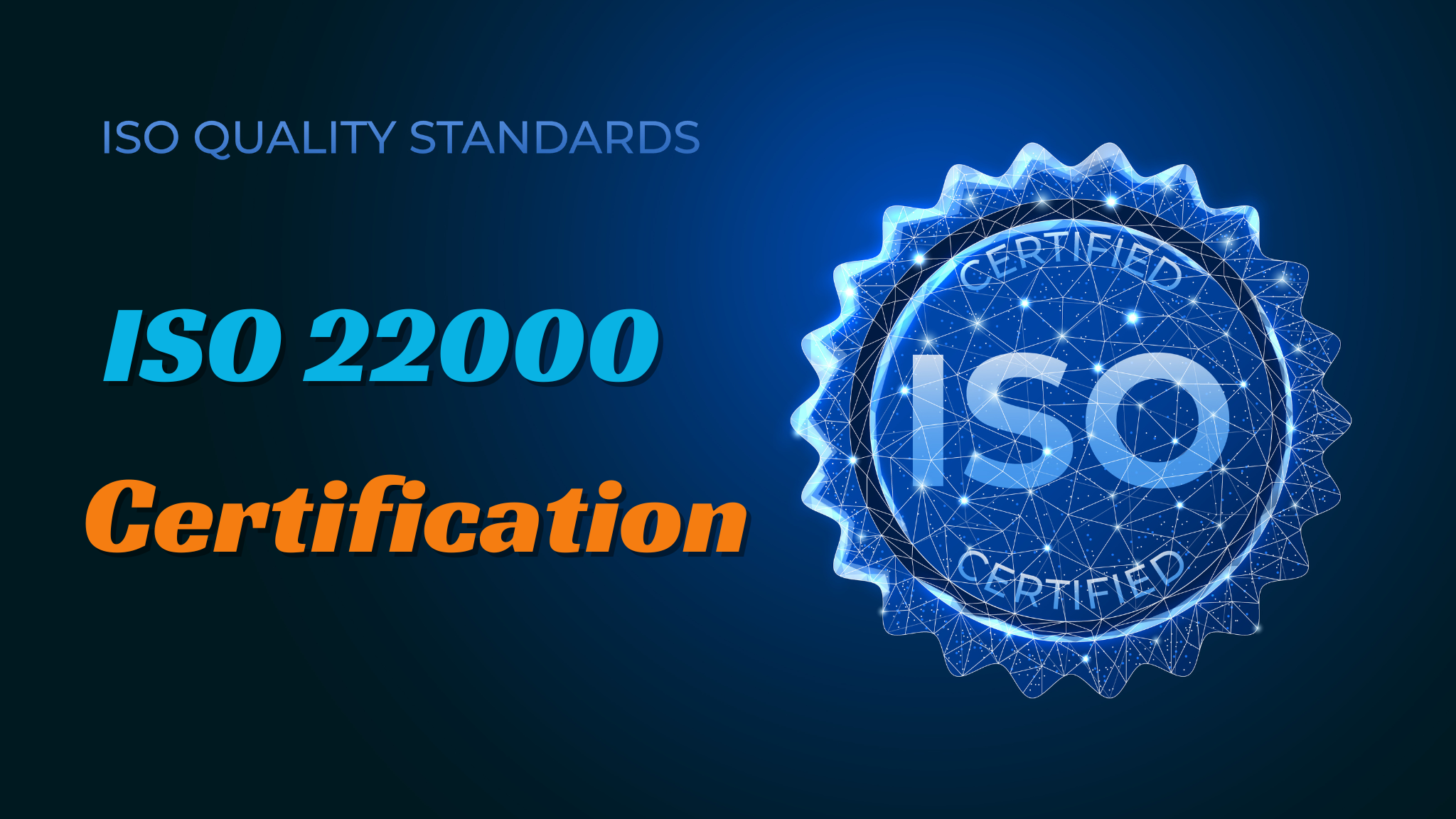Unveiling Excellence A Dive into ISO 22000 Certification
- 1 Understanding ISO 22000
- 2 Benefits of ISO 22000 Certification
- 2.1 A. Pivotal Role in Ensuring Food Safety
- 2.2 B. Building Trust and Confidence
- 2.3 C. Compliance with Legal and Regulatory Requirements
- 2.4 D. Opening Doors to Global Markets
- 3 Implementing ISO 22000: A Strategic Approach
- 3.1 A. Planning for Certification Success
- 3.2 B. Executing Changes and Documenting Processes
- 3.3 C. Training the Workforce
- 3.4 D. Internal Audits and Management Review
- 4 Overcoming Challenges in ISO 22000 Certification
- 4.1 A. Common Hurdles Faced by Organizations
- 4.2 B. Strategies for Success
- 4.3 C. Real-Life Examples of Success
- 5 Future Trends in Food Safety and ISO 22000
- 5.1 A. Evolving Food Safety Regulations
- 5.2 B. Integration with Other Management Systems
- 5.3 C. Technological Advancements in Food Safety
- 6 Conclusion: A Continuous Commitment to Excellence
ISO 22000 certification, established by the International Organization for Standardization (ISO), is a globally recognized standard. It delineates the requirements for a comprehensive food safety management system, ensuring the safety of the entire food supply chain. This certification is a framework for organizations to establish, implement, maintain, and continually improve their food safety management systems.
The Global Imperative of Food Safety
In today’s interconnected world, prioritizing food safety is crucial. With the vast and complex global food supply chain, the safety of food products is a critical concern for governments, businesses, and consumers. Foodborne illnesses can lead to public health crises, economic losses, and reputation damage. Consequently, ensuring food safety is a legal requirement and fundamental for maintaining consumer trust and confidence.
Purposeful Certification for Safe Consumption
The primary purpose of ISO 22000 certification is to provide a systematic and internationally recognized approach to managing food safety throughout the entire food supply chain. Applicable to organizations of all sizes, from small farms to large enterprises, ISO 22000 helps identify and control food safety hazards, ensuring the production or handling of safe and quality food products. Implementing ISO 22000 principles contributes to regulatory compliance and continual improvement.
Understanding ISO 22000

A. Navigating ISO 22000 Standards
ISO 22000, a globally recognized standard outlining the requirements for a Food Safety Management System (FSMS), aims to harmonize food safety management across the entire supply chain. Applicable to organizations of all sizes, the standard emphasizes the systematic identification and control of hazards to ensure the safety of food products.
B. Key Principles for Food Safety Assurance
-
HACCP: Proactive Food Safety Management
Hazard analysis and critical control points (HACCP) are fundamental to ISO 22000. Emphasizing a proactive and preventive approach, HACCP systematically identifies, assesses, and controls potential hazards at critical points in food production. This ensures mitigation of risks associated with biological, chemical, and physical hazards, guaranteeing the safety of food products.
-
Management System Requirements: Effective Implementation
ISO 22000 integrates management system requirements to ensure the effective implementation and maintenance of a food safety management system. Covering organizational context, leadership commitment, resource management, communication, and documentation, these requirements establish a robust framework aligned with overall business objectives.
-
Continual Improvement: Adapting to Challenges
Continual improvement is a core principle of ISO 22000, necessitating organizations to assess and enhance their food safety management systems regularly. This involves monitoring performance, conducting internal audits, and responding to feedback and changes in the food industry landscape. Fostering a culture of continual improvement enables organizations to adapt to emerging challenges, stay compliant, and enhance the effectiveness of their food safety practices.
Benefits of ISO 22000 Certification

A. Pivotal Role in Ensuring Food Safety
ISO 22000 certification plays a pivotal role in ensuring the safety of food products throughout the entire supply chain. Organizations adhering to ISO 22000 standards establish systematic processes for identifying, assessing, and controlling potential hazards. This proactive approach significantly reduces the risk of foodborne illnesses and contamination, instilling consumer confidence.
B. Building Trust and Confidence
In an era where consumers prioritize the origin and safety of their food, ISO 22000 certification becomes a powerful tool for building trust and confidence. The certification is a visible commitment to food safety, assuring consumers that products meet stringent international standards. Enhanced trust leads to increased brand loyalty, positive word-of-mouth, and a competitive advantage in the market.
C. Compliance with Legal and Regulatory Requirements
ISO 22000 certification aids organizations in staying compliant with legal and regulatory requirements related to food safety. Governments and regulatory bodies worldwide emphasize the safety of food products, making ISO 22000 certification a demonstration of commitment to meeting and exceeding these requirements. This minimizes legal risks and positions organizations as responsible and conscientious players in the industry.
D. Opening Doors to Global Markets
ISO 22000 certification opens doors to new markets and enhances a company’s competitiveness globally. Many international markets prioritize working with certified suppliers, and ISO 22000 is widely recognized as a benchmark for food safety. Certification provides organizations a distinct competitive advantage, facilitating entry into new markets and collaboration with partners valuing food safety in their supply chains.
Implementing ISO 22000: A Strategic Approach

A. Planning for Certification Success
Planning is crucial when embarking on the journey towards ISO 22000 certification. Organizations should conduct a thorough gap analysis, identifying areas of improvement and aligning existing processes with ISO 22000 standards. Establishing a dedicated food safety management team and allocating necessary resources is paramount to ensure a smooth certification process.
B. Executing Changes and Documenting Processes
Implementing necessary changes based on the gap analysis is the next step. Organizations must document their processes and procedures in alignment with ISO 22000 requirements. This documentation not only aids in the certification process but serves as a valuable resource for employees, fostering a shared understanding of food safety protocols.
C. Training the Workforce
A well-trained workforce is a cornerstone of successful ISO 22000 certification. Employees at all levels should undergo training to understand the principles of ISO 22000, their roles in ensuring food safety, and the importance of continual improvement. Training programs contribute to a culture of awareness and accountability within the organization.
D. Internal Audits and Management Review
Conducting internal audits is an essential step in the certification journey. These audits evaluate the effectiveness of the implemented food safety management system and identify areas for improvement. Additionally, regular management reviews ensure that the system remains aligned with organizational goals and adapts to changing circumstances.
Overcoming Challenges in ISO 22000 Certification
A. Common Hurdles Faced by Organizations
The road to ISO 22000 certification may present challenges for organizations. Common hurdles include resistance to change, resource constraints, and the complexity of aligning existing processes with ISO standards. Recognizing and proactively addressing these challenges can significantly contribute to the success of the certification process.
B. Strategies for Success
Implementing strategies to overcome challenges is crucial. This may involve comprehensive employee training programs, clear communication of the benefits of certification, and leveraging external expertise when needed. Case studies of organizations that successfully navigated challenges can provide valuable insights for others on a similar journey.
C. Real-Life Examples of Success
Examining real-life examples of organizations successfully achieving ISO 22000 certification can inspire and guide. These case studies showcase diverse approaches to overcoming challenges, highlighting the tangible benefits these organizations have experienced in enhanced food safety, improved market reputation, and increased competitiveness.
Future Trends in Food Safety and ISO 22000

A. Evolving Food Safety Regulations
The landscape of food safety regulations is continually evolving. Organizations pursuing or maintaining ISO 22000 certification should stay abreast of these changes. Anticipating and adapting to evolving regulations ensures that the food safety management system remains compliant and aligned with the latest industry standards.
B. Integration with Other Management Systems
A growing trend is the integration of ISO 22000 with other management systems, such as quality management (ISO 9001) and environmental management (ISO 14001). This integrated approach streamlines organizational processes, improves efficiency, and demonstrates a holistic commitment to excellence.
C. Technological Advancements in Food Safety
As technology advances, so does its role in ensuring food safety. Organizations can leverage advanced technologies such as blockchain for traceability, data analytics for predicting food safety risks, and sensor technologies for real-time monitoring. Staying abreast of technological advancements enhances the organization’s ability to manage food safety proactively.
Conclusion: A Continuous Commitment to Excellence
A. Recapitulation of ISO 22000’s Significance
In conclusion, ISO 22000 certification is not a one-time achievement but a continuous commitment to excellence in food safety. It provides organizations with a robust framework, ensuring the safety of their products and fostering consumer trust globally. The certification process allows organizations to elevate standards and contribute to a safer, more resilient food supply chain.
B. Encouragement for Ongoing Excellence
Encouragement is extended to organizations that view ISO 22000 certification as a catalyst for ongoing excellence. The benefits extend beyond regulatory compliance, offering a competitive edge, enhanced consumer trust, and adaptability to future challenges. Continuous improvement should be ingrained in the organizational culture, ensuring sustained success beyond the initial certification.
C. Embracing the Future of Food Safety
As organizations embark on or continue their ISO 22000 certification journey, embracing the future of food safety is paramount. Adapting to evolving regulations, integrating management systems, and leveraging technological advancements position organizations as leaders in ensuring the safety and quality of the global food supply.
In conclusion, ISO 22000 certification is not just a milestone; it’s a testament to an organization’s unwavering commitment to excellence and safety in the dynamic landscape of the food industry.

















